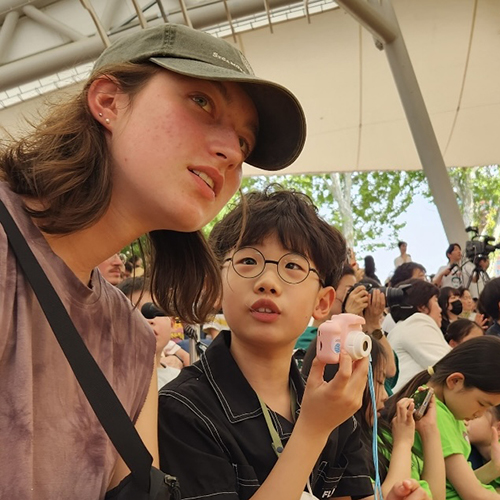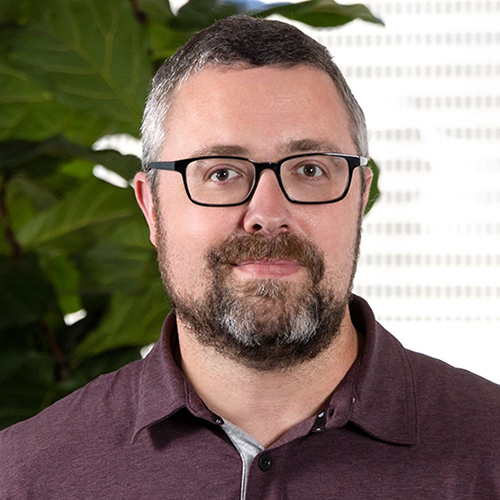When Maya Dietz (MA, ’02) considered joining the Peace Corps in the late 1990s, her father—a former Peace Corps Volunteer—was concerned. Political turmoil had put Peace Corps volunteers at risk in several highly publicized incidents, and he worried about his daughter’s safety.
Five years later, after earning master’s degrees in international studies and public administration, Dietz discovered another option for serving abroad: the U.S. Foreign Service. Her first Foreign Service assignment? Rwanda. From there she went to Baghdad. So much for playing it safe.
“It was my choice to go to Baghdad,” says Dietz. “I wanted to be at the center of U.S. foreign policy. I figured I couldn’t get more at the center than Iraq. I saw it as a once-in-a-lifetime opportunity.”

Dietz is among a growing number of UW alumni pursuing Foreign Service careers. Employed by the U.S. Department of State, Foreign Service Officers are assigned to U.S. consulates or embassies abroad, with periodic postings to Washington, D.C.
Responsibilities might include reporting to the State Department about a country’s political or economic situation (with particular attention to U.S. interests), organizing cultural and educational exchanges, issuing passports and visas, addressing the problems of U.S. citizens abroad, or managing the day-to-day operations of a U.S. embassy or consulate.
Getting the Job
For individuals with a passion for travel and an interest in world affairs, the Foreign Service can be a dream job. But it does have its challenges—the first of which is getting hired.
The Foreign Service Exam is notoriously difficult, with a very low pass rate, according to Darryl Johnson (BA, English, ‘60), who served in the Foreign Service for 40 years and now teaches a related course in the UW’s Jackson School of International Studies (see box, page 12). “Last year, about 25,000 people took the Foreign Service exam,” he says. “Only about 800 made it in.”
Those who pass the written exam must then take an oral exam. A few years ago they might have faced Foreign Service Officer Mary Kruger (BA, Russian language and literature, ’70). Between international assignments, Kruger spent two years in Washington, D.C. giving the oral exam. “That was actually one of my favorite jobs,” she recalls. “It was exciting to see how many people from all sorts of backgrounds are interested in serving in the Foreign Service.”
Jesse Curtis (MA, international studies, ’96) took—and failed—the exam twice. Then he completed a State Department internship at the Korea desk in Washington, D.C. and understood what he’d been doing wrong.
“I had been thinking like an academic, viewing all the questions as research projects,” Curtis says. “I realized that I needed to think like a bureaucrat. When presented with problems, I needed to ask, ‘Which option upsets the fewest number of people, requires the fewest expenses, can be implemented the fastest, and provides maximum positive public relations benefit?’”
On his third try, Curtis passed the test.
Witnessing History
Curtis’s first Foreign Service assignment was a consular job in South Korea—
a logical choice following his internship at the Korea desk. Not all choices are as obvious. Case in point: Maya Dietz’s request to work in Rwanda.
Dietz, like all Foreign Service Officers, reviewed a list of open positions and bid on her top choices. Serving as a political officer in Rwanda was her first choice, she says, because of the embassy’s small size. “I was one of only two political officers there, so I had a lot of high level access,” she explains. “I got a lot more experience than one would normally get.”
Dietz was also attracted by the prospect of witnessing Rwanda’s first multi-party national election since independence. “I felt that period was going to be fascinating in Rwanda-U.S. relations,” she says.
“A lot was happening. It was a controversial election, quite contested. It made it
an interesting time to be there.”
The opportunity to be present as historical events unfold is a major perk of Foreign Service work. Darryl Johnson was serving in Hong Kong when Henry Kissinger and Richard Nixon made historic visits that thawed U.S.-China relations. Mary Kruger witnessed the collapse of the Soviet Union just one month after arriving in Kiev as a public affairs officer.
“That changed everything,” Kruger recalls. “Suddenly we were no longer a consulate tied to the Moscow Embassy. We became a full-fledged embassy for Ukraine and grew very quickly. Within six months, we launched a whole bunch of exchange programs between Ukraine and the U.S.”
A Sense of Place
Before joining the Foreign Service, Kruger studied in the Soviet Union through an undergraduate study abroad program.
“I started studying Russian in high school in the 1960s,” says Kruger. “People were very concerned about the Soviet Union, which was viewed as this mysterious power. I had this naive idea of building bridges to bring our countries closer together. I’ve been lucky that I have been able to do something to work toward that goal.”
Nearly all of Kruger’s assignments have been in former Soviet countries. After Kiev, she worked in Moscow and St. Petersburg. She switched gears a few years ago, taking an assignment in Brazil, but is now back in St. Petersburg as Consul General, heading the 140-employee consulate.
Talking the Talk
The long list of countries in which Johnson and others have served is impressive. But how do Foreign Service Officers deal with language issues as they move from one
assignment to the next? The answer: the old-fashioned way.

The State Department provides its officers with the extensive language training needed for each assignment. Depending on the difficulty of the language required, the training can take months or years. “The idea is to train you so you can use the language professionally,” says Johnson. “That takes time.”
Before his first assignment in Hong Kong, Johnson spent two years studying “all day, every day” to become proficient in Chinese. He learned Thai, Russian, Polish, and some Lithuanian for other assignments. Mary Kruger, while fluent in Russian, had to study Ukrainian before heading to Kiev. Maya Dietz spent six months studying French before traveling to Rwanda. (She is now in Australia—no language training needed for that post!) Jesse Curtis studied Spanish for an assignment in Mexico City.
Spanish will come in handy for Curtis’s next job, as a political officer in Nicaragua. To prepare, he is taking a “crash course” in the culture, politics, and history of the region, offered by the State Department. He’s also meeting with Nicaraguan experts in the D.C. area.
“The Department is pretty good about making sure that you have the background and skills that you need,” says Curtis. “But a lot of it is on-the-job training. Especially in political and economic work, you can’t know what you need until you’re there, developing relationships and contacts.”
A Family Affair
When Curtis heads for Nicaragua, he will be joined by his wife and three children, ranging in age from 3 to 10 years. To complicate matters, Curtis’s wife, Lara Harris, is also a Foreign Service Officer.

The Curtis-Harris family has already lived in South Korea, Mexico City, and Saudi Arabia. Harris passed the Foreign Service Exam while they were in Korea, so subsequent posts have required some negotiation. “Our assignments are dictated by there being two jobs at the right grade, in the right field, at the same time,” says Curtis. “It constrains the universe of assignments we can pull from. Each time we get reassigned, one or the other of us will take the lead. It’s challenging, but it has worked out for the most part.”
With three children, the availability of good schools is also a consideration. “It gets harder as the kids get older,” Curtis says. “Looking ahead, we don’t want to be pulling them out of school in their senior year of high school.”
Darryl Johnson had similar concerns, which is why he spent seven years on assignments in Washington, D.C. during his children’s junior high and high school years. “I wanted them to be firmly grounded in what was home,” he explains.
Foreign Service Officers, regardless of whether they have spouses or children, also need time in the U.S. to remain grounded. Most officers spend about one third of their career working in Washington, D.C., but when they are working abroad they are required to take a “home leave” between assignments (about every two years), remaining in the U.S. for a minimum of 22 work days. “It’s viewed as an opportunity to become reacquainted with U.S. culture,” says Dietz. “Being so far away from your own culture, family, and friends is the hardest part of the job.”
So Many Strange, Interesting Things
With frequent moves and a constantly shifting political landscape, the Foreign Service is not a career for the timid. Adaptability, says Kruger, is an essential trait for anyone considering this line of work.
“You never know what’s going to happen,” she says. “You have to be able to go with the flow. You also need a fairly high tolerance for ambiguity, since you often don’t know all the facts. It’s very exciting, but there’s a lot going on at once, with a lot of unknowns.”
For Jesse Curtis, that is what makes it such a satisfying career.
“You get to do so many strange, interesting things,” says Curtis. “On a regular basis, I’m thinking, ‘I can’t believe they pay me to do this.’ It’s phenomenal. I love going to work every day. And I know a lot of my colleagues have the same feeling.”
More Stories

Finding Family in Korea Through Language & Plants
Through her love of languages and plants — and some serendipity — UW junior Katie Ruesink connected with a Korean family while studying in Seoul.

Working Toward Responsible AI
Artificial intelligence (AI) is an essential tool at Indeed, a global job-matching and hiring platform. Trey Causey (2009) works to ensure that the company's AI promotes equity and fairness.

Celebrating Contemporary Indigenous Music
Markus Teuton, a musician and citizen of Cherokee Nation, explores contemporary Indigenous music through his academic work and as host of “Indigenous Jazz,” a radio show.